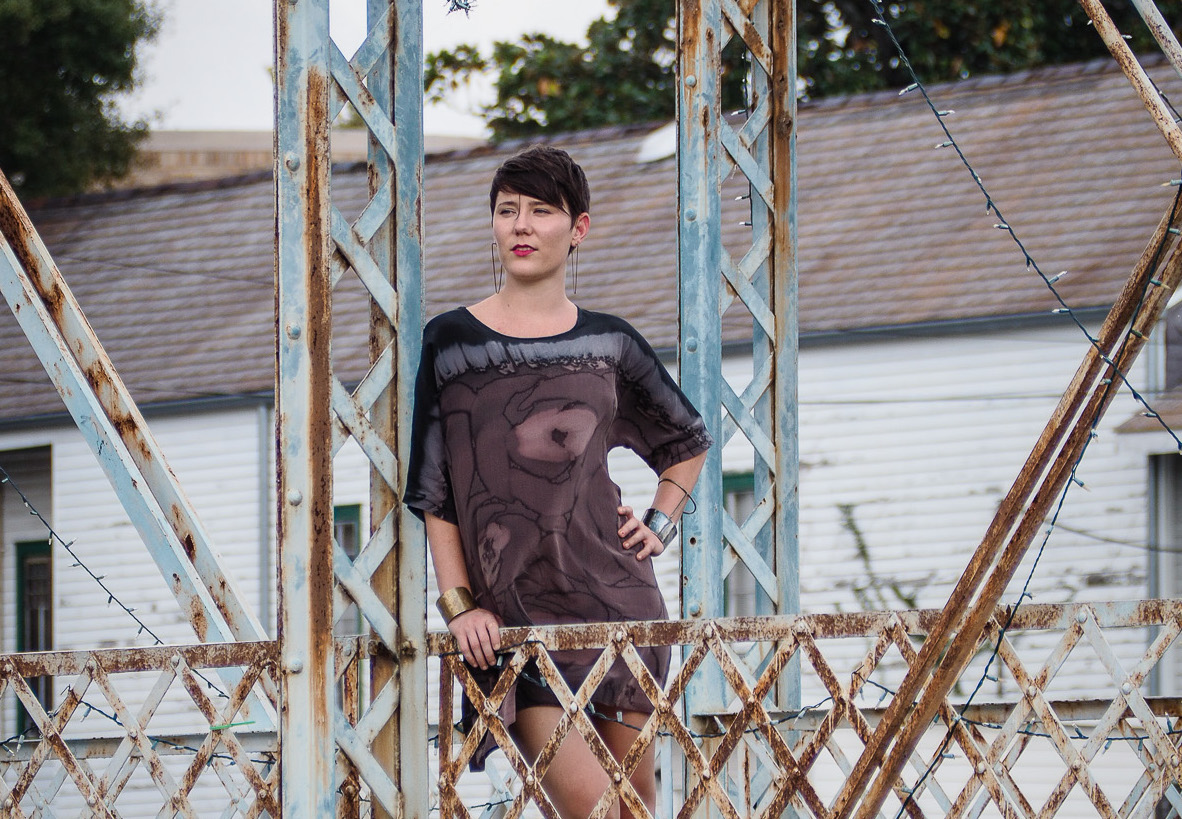
Smoke Founder Kathleen Currie On The Opportunities And Pitfalls Of Passion Projects
Smoke founder Kathleen Currie’s essential oils formulas are motivated by passion and imagination, and rarely the bottom line. That approach is helpful for producing beautiful fragrances, but not the best for supporting a sustainable company. Currie has been slowly picking up operational wisdom to turn Smoke into a profitable as well as a creative force. “I’m not a business person. I never worked at retail before and, suddenly, I had a retail product. Wrapping my head around numbers isn’t my natural strong suit, and it’s been challenging,” acknowledges Currie. “It’s been a lot of trial and error, and learning through mistakes.” Beauty Independent spoke with her about those mistakes, ingredient transparency, social media, packaging flubs and coping with tough times.
Tell us a bit about yourself. Where are you from?
I grew up in Belize, which is where my mom is from. I’m a dual Belizean-American citizen. My mom moved to New Orleans when she was 17, and she met my dad in college. They met sailing. They moved to Belize after two or three years of marriage, and they lived in Belize for 27 years. There is a huge New Orleans-Belize connection because of the banana trade and New Orleans being a port city. I spent the first 12 years of my life in Belize and, then, I moved to Mississippi. I went to college in Arizona and, in 2009, I moved to New Orleans to be closer to my family.
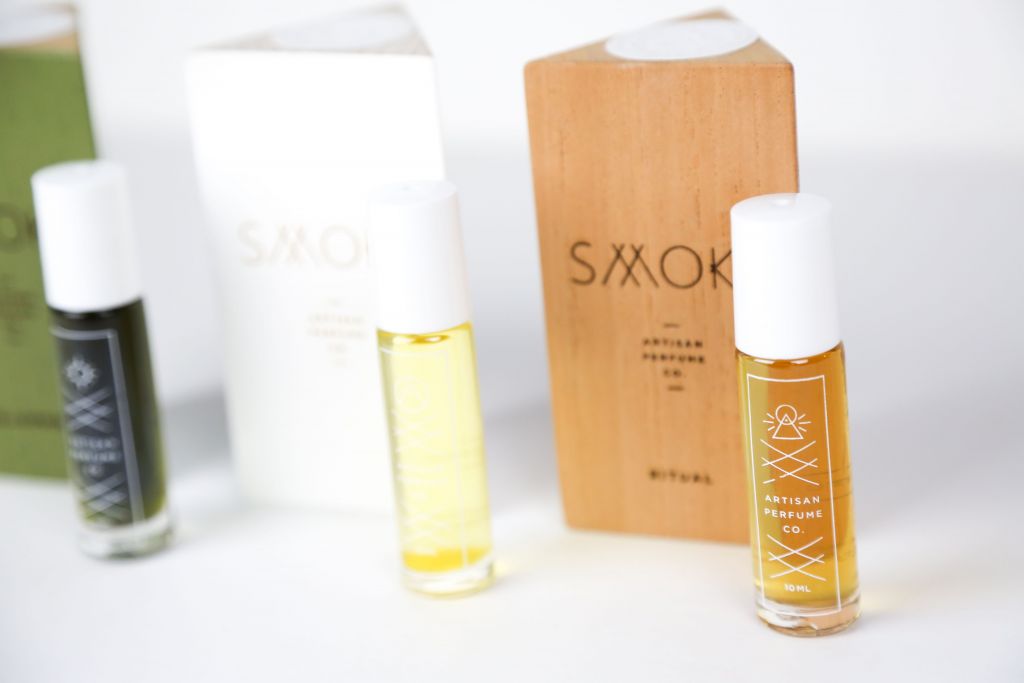
What did you think you’d do?
I’m someone who has always had a hard time figuring that out. It took me forever to figure out a major in college. Even when I graduated college, I kind of drifted. I had gotten a degree in holistic health. I moved to Tucson with friends. I was interested in the mind-body connection, and I was a personal trainer in college. I fell back on that as a default and worked as a trainer in my early 20s, but I knew that’s not really what I wanted to do. I went to massage school in Tucson. When I moved to New Orleans in 2009, I had just graduated from massage school and started doing bodywork full-time. For a while, I was very passionate about it, but the whole ‘What do you want to do with your life?’ question is hard for me. Even now, I sometimes think, “Is this what I want to be doing?”
How did you go from there to fragrance?
I was working full-time as a massage therapist and starting to build my private practice. I became obsessed with essential oils. When I moved here, I felt a creative rush. I started expressing myself with essential oils and was doing custom blends for all my clients. I would work intuitively, and make a blend of four or five oils and use that in a session. I was interested in the psychological and emotional impact of the blends. I started making a blend that was vetiver-based and was getting all these compliments on it. I never started out saying I wanted to start a perfume company. It was a very accidental journey.
When did you formalize Smoke?
I created the first blend in 2009, and I didn’t launch it until 2013. For years, I was just thinking about it. I would take one step forward and two steps back. It took me a while to find the right designer for the packaging. I cycled through three designers before I landed on the one I work with today. The name came about really casually. My brother is also an entrepreneur. He was really instrumental and encouraged me, and we brainstormed together. We were getting dinner one night with a friend. The friend went out to smoke a cigarette, and we thought, “Oh, smoke!” It was very project based in the beginning for me. I didn’t have a vision, business plan or brand in mind per se. I had one fragrance, and I thought it would be fun to launch it. So, when we launched in 2013, I had just one scent. It was the original Smoke perfume in rollerball form. About a year into having that one product, I started to think bigger picture.
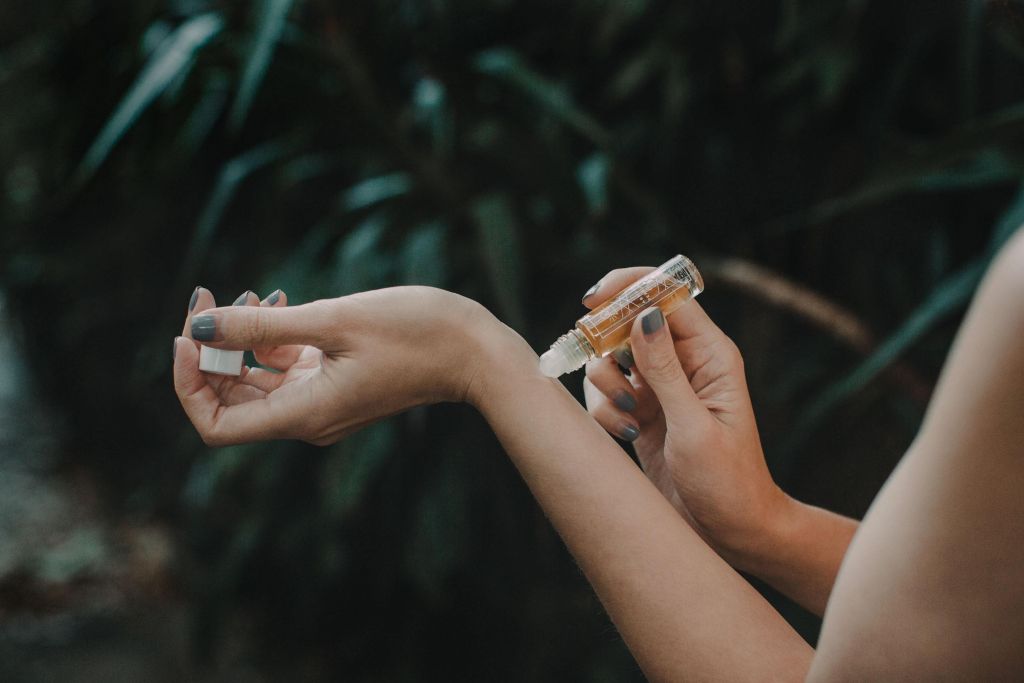
What’s your vision for the brand today?
I’m committed to all-natural ingredients. I made that decision a long time ago when I was creating my second fragrance. The green perfume conversation is getting louder, and that’s really exciting. I still work part-time as a massage therapist, and I greatly value the mind-body connection. I try to create products that inspire self-care and deeper connection. Because the perfumes are made with essential oils, you get aromatherapy benefits from wearing them. They’re not just perfume. They toe the line between being beautiful and therapeutic. They look good, smell good and feel good, but have a little bit of a hippie side, too. They help combat the stresses of modern life and create a moment.
How did you move from the original Smoke product to more products?
My second product was the Smoke-scented candle and, after that, I made a Smoke-scented salt scrub that I just discontinued. Then, I started to branch out. I made a second scent called Ritual, which is more warm and spicy. It’s also one of our better sellers and a scent the brand is really known for. I launched products that had deep meaning to me. When I launched my body oils, I had just taken an herbalism course and was into using fresh plant matter, and infusing it with oils. I’ve always been intuitive and experimental in how I have launched products, and that has mostly served me well. I have had a few flops. I did a lot of limited editions one year, which I don’t think is smart if you’re trying to build a brand. Now, five years in, I’m being very selective about launching new products. I’m in a new place in terms of how I grow the brand. In the beginning, I was flying by the seat of my pants a bit.
How much money did it take to launch Smoke?
Because I launched with one product and it took so long, I was paying as I went. Everything the brand made, I put back into the business. I don’t remember if it was $2,000 or $5,000 or less, but I’ve never took out a loan or went into debt supporting the business. It has always paid for itself.
When do you plan to reach profitability?
That’s definitely a goal for this year. I’m very, very close.
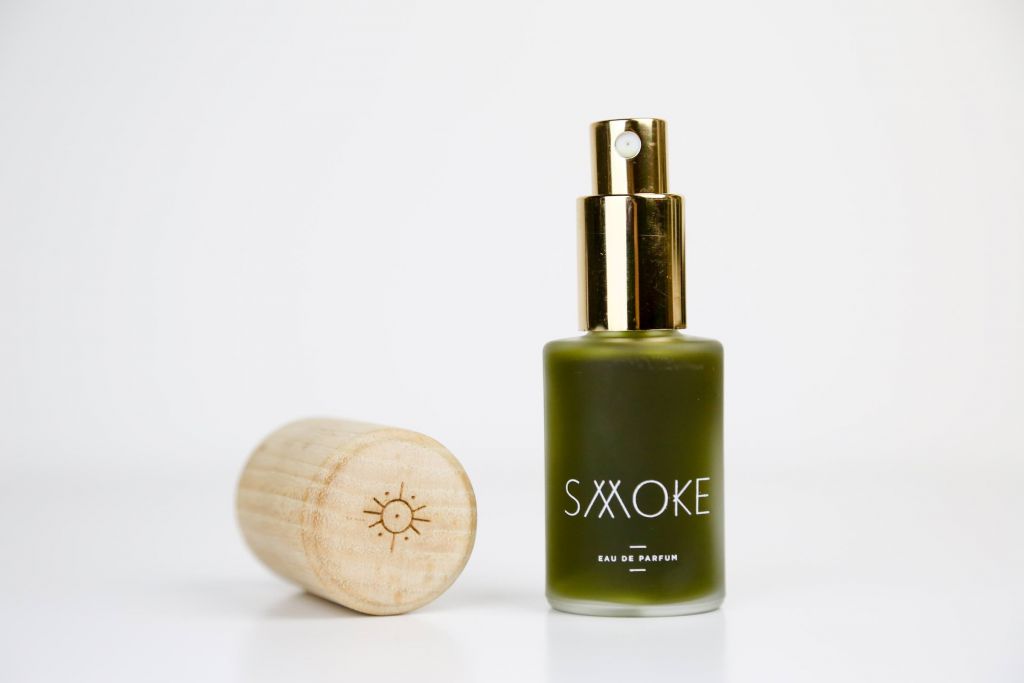
Who is the Smoke target customer, and how did you identify that target?
I have a unisex product, but most of my customers are female. I would say they’re 85% female, 15% male. The target customer is an informed consumer who likes a sense of discovery. It’s someone who is interested in the unique feel of the brand and the natural lifestyle. They are holistic-minded, global-thinking and a more liberal, metropolitan shopper.
Where is Smoke sold now? What is your distribution strategy?
I have 100 retail stockists nationwide. Of course, I do online sales. At first, it was driven by a lot of word of mouth. I’ve gotten a lot more intentional about it. One of my employees is a wholesale account manager, and we work closely together to research boutiques, spas and wellness-aimed places. We have a cold-call approach. She will reach out to a lot of people, but a lot of stores reach out to us as well. I have a sample kit that I send out to wholesale accounts whether I cold call them or they reach out to me. We start the ball rolling with that. Part of my strategy for this year is to reach out to new markets. California, Louisiana, New York and Tennessee have been great for me. I’m looking more at the Midwest.
What is Smoke’s best-performing retail door?
The Class by Taryn Toomey in New York City. She carries only two of my products: Full Moon Rose Body Oil and the Trinity Perfume Set. She brings in consumers interested in wellbeing and self-care, and all of the products she has cater to that. She discovered the Rose Body Oil and fell in love it. She has a personal relationship with it and promotes it really well. Her whole team is on board with the Rose Body Oil, and they can talk it up all day. There’s something to be said for just carrying a few products and not the whole line.
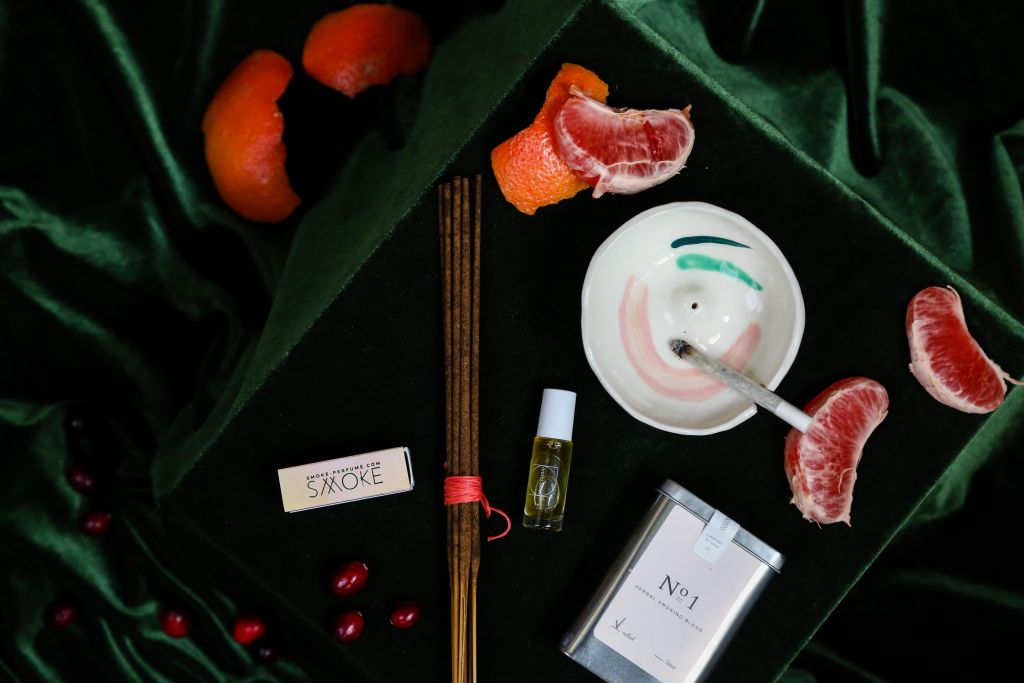
What percentage of your business is direct versus wholesaling to retailers?
Right now, wholesale is slightly higher than direct. My goal for 2018 is to be more direct and a little less wholesale. The margins on direct sales are better for the brand, and I’m really excited about building my community. I want conversations with my customers. You lose a bit of agency when your product is in a store. Some stores are amazing like Taryn’s, but other stores have displays that look funky and perhaps they haven’t restocked for a year, so they have something that’s not the freshest.
Amazon, yes or no?
I am not on Amazon. I am a little freaked out by it. I don’t know if it’s the right fit for my price point and my brand. Then again, I buy so much on Amazon. I think I need to talk to brands that are on it and learn about their experiences.
What is Smoke’s price range?
The price range runs from tiny samples that are as low as $4 to $90. The original roll-on perfumes are $60. We landed on that through a few ways. One was crunching the numbers to figure out what the price needed to be. I also looked at what the market would support, and $60 is a great price considering the material costs. I have played with pricing in the past. I have raised them. I lowered them, but not a lot, and I didn’t lower everything. I lowered the Rose Body Oil to $48 from $55 or $60 initially for a 4-oz. bottle. I made it limited edition at first, but, then, I found a farmer I could work with for the roses to not make it limited edition. I really try to land on the price from the beginning now because it’s not good to have the price fluctuate.
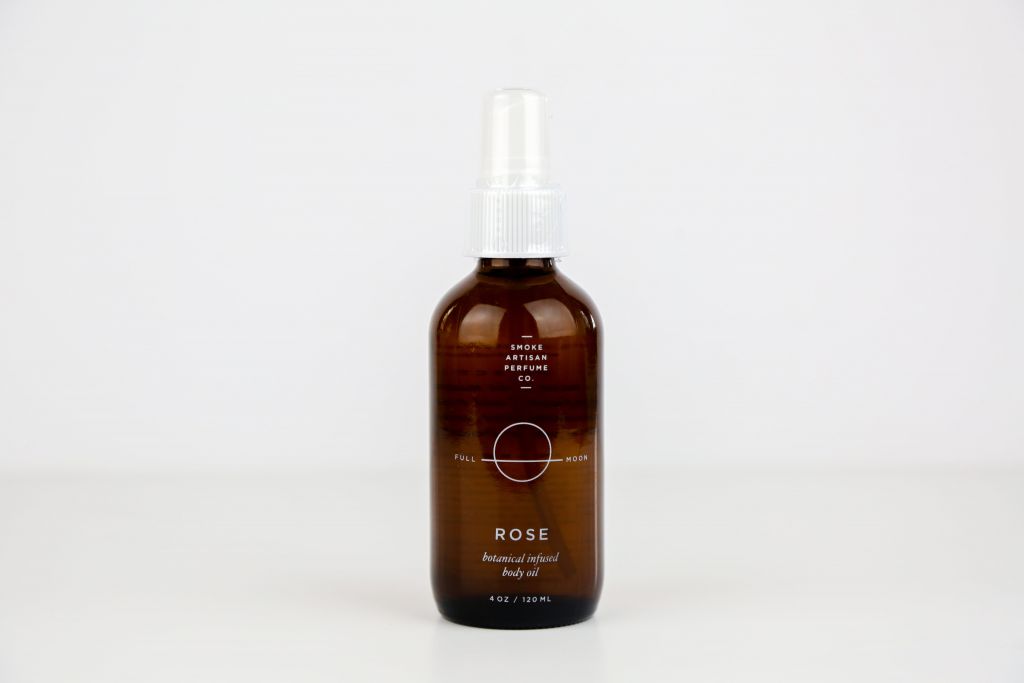
Do you have a mentor?
I studied with Mandy Aftel, who is the leader of the natural perfume movement. What I love about her is that she’s a total artist, and she’s really helped strengthen the why of my brand. She says all the time, “If you don’t want to do it, don’t do it.” That advice seems so obvious, but it’s always helped me. You don’t have to do anything you don’t want to do.
For other entrepreneurs in your boat, what suggestion do you give them for how to pull through the tough times?
Time, space and support are important. It’s really tough to be an entrepreneur. It’s about feast or famine. You don’t necessarily know where your next paycheck is coming from. Because I was self-taught and not a business person, a lot of years were challenging. My tough times were really tough. Now, my tough times are different. Support can come in different ways. You can surround yourself with friends or see a therapist. Self-care is a huge part of my life as an entrepreneur. For me, that’s about nature and restful time off. Tough times will come and go, and you have to recognize when you’re having a tough time, and think about what you need to do to shift that.
What was the worst day at Smoke, and why?
The worst day of my business was in 2016. I had flown to New York for a trade show. That was a huge deal. I had never done a trade show. I was really nervous, and I felt a lot of pressure. Then, I got three emails from wholesale accounts that packages they received had leaked. I had a major issue on my hands with the packaging. The glass bottles I had been using started to leak profusely. I called my glass supplier, but they denied that anything was happening. While I was at the trade show, I was panicking about the bottles. The whole day was horrible, and it was the beginning of a challenging year. The leaking issue took a long time to resolve.
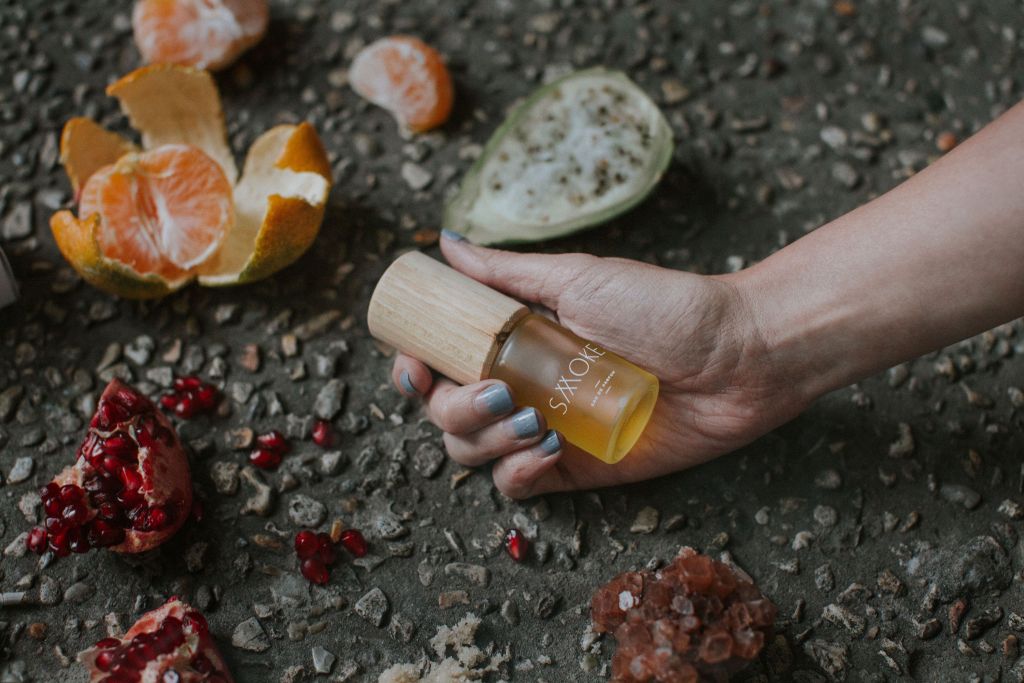
Did you change the bottles?
The glass supply company wasn’t even willing to have a conversation about something happening on their end. Because they weren’t willing to have that conversation, I drove myself crazy changing the way I was packaging the bottles. We tried everything, including smudging with sage. I couldn’t get that bottle anywhere else, and I felt that amber glass was who my brand was. I was unwilling to make a change, and I put up with months of suffering that I didn’t need to. When I finally decided that getting the bottles not to leak was the number-one priority, it was freeing. Now, I like the clear bottles I have way more, and I’m much more agile. I had a tiny leaking scare early last year, and I made a switch immediately to nip it in the bud.
Were the bottles your only packaging misstep?
I’ve spent a lot of time on packaging development that hasn’t worked out. At one point, I was trying to develop a cement candle holder. It took up a ton of energy and didn’t work at all. I would have to pour the cement into molds myself, but I didn’t have the manpower or time to pour it. I spent a couple of months exploring that option. My desire to have a really unique brand and to have a bespoke feel is great, and it can be not so great. That’s an example of how it got the better of me. I’m better off with the beautiful pre-made jar I have now.
You mentioned having a few product flops. What were you referring to?
After I took the herbalism course, I was really excited about taking the brand in an herbal direction. I still think that world is fascinating, but I’m not sure if it’s the direction my brand should go. I launched a floral essence. It was a tincture that you take internally. It wasn’t the right fit for the company. I love flower essences, but I think they’re a bit confusing for my customer base and wholesale accounts. The wholesale accounts wanted to carry the limited-edition products, and I didn’t want to wholesale them because they were limited edition. It was a lesson for me. I need to keep creativity alive while making more consistent decisions.
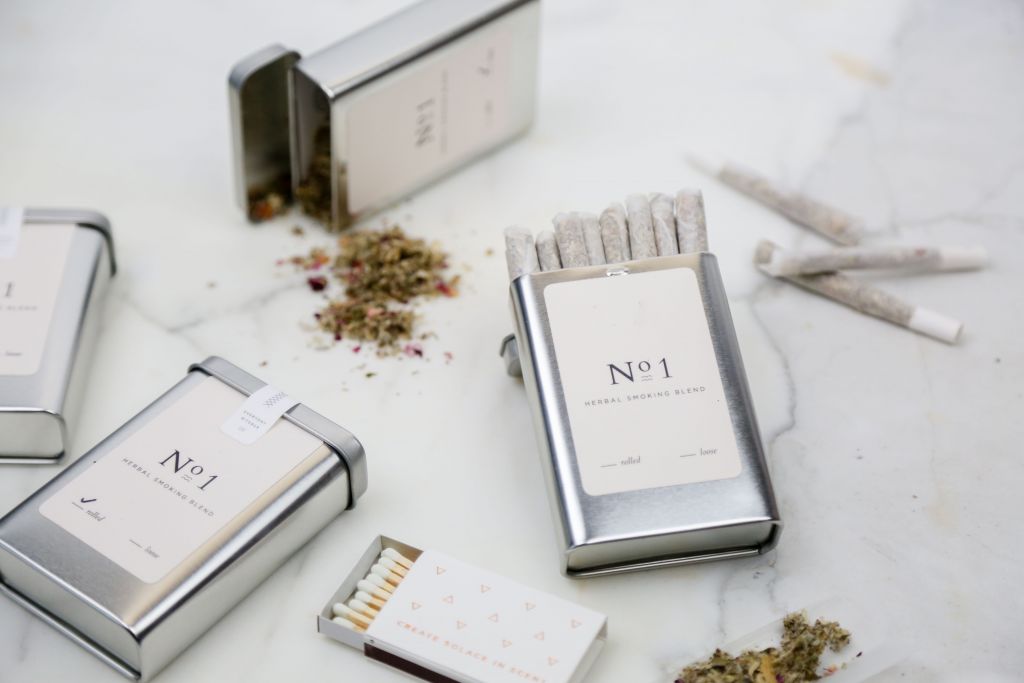
What’s your approach to social media?
I run all the social media, and I feel like I’m still figuring it out. Instagram has been the best form of social media. We keep up Facebook and Twitter, too. I’m trying to get more strategic in my approach. There’s a fine line. How much do I share of my process as a female business owner? How much do I just showcase the brand? I pepper in different posts. Some of my posts are educational. Some of them focus on holistic health and self-care. Then, I showcase beautiful brand photos. I like to think my social media is inviting.
What’s your work space like?
I have studio space in an old school building that was converted into office spaces. The building is full of amazing people doing all sorts of creative projects. I share my studio with two other people. I have my computer setup, and I have a production table. It has shelves full of raw materials and inventory. I have a lot of plants, really big plants. Those plants are around my desk. If you walk into my office, my desk looks like a jungle, and I love that. I’m really happy to be there. I was working out of my friend’s space for a long time. A year ago, I moved, and it’s been a game changer.
There’s been a lot of new entrants and acquisitions in the niche perfume segment. What has that meant for you?
I find it to be very motivating. It’s good to not be too comfortable and to keep stepping your game up, and evaluating what you are doing and why. I have never really felt in competition with the big perfume houses. I’m not in Saks, and I’m not necessarily trying to be at this point in my brand. I’m not trying to compete with Gucci fragrances.
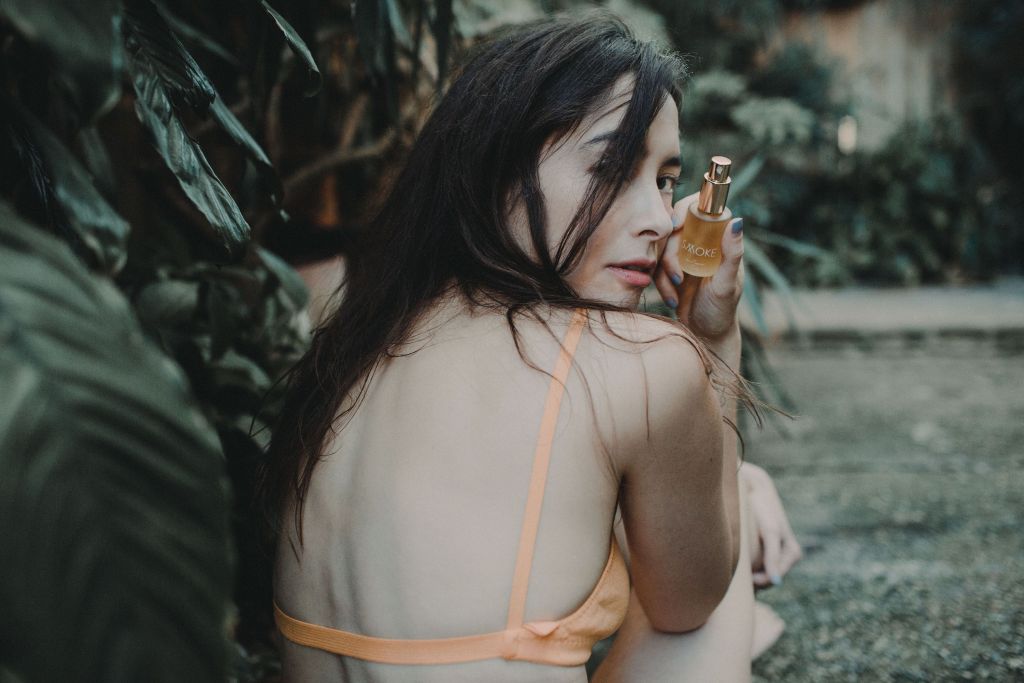
What’s your take on the push toward more fragrance ingredient transparency?
Transparency is important, and I also respect that perfume has always been this mysterious world. Part of the magic of perfume is that nobody really knows what goes into how it’s made, and it’s a very intimate creation process. I think there should be transparency as to whether you are using synthetics or not. On my ingredients list, I put essential oils, absolutes and organic perfumer’s alcohol, but I don’t feel comfortable putting all the ingredients that are in the perfume. There’s a trade secret aspect that I want to protect, especially as the field has gotten more crowded. I certainly would be upfront if I was using synthetics, and you should specify what type of alcohol you are using. That’s good for consumers to know.
What are goals for Smoke going forward?
I’m excited to build out the brand community, develop the newsletter and work with guest bloggers. I’m working with people who specialize in marketing to implement a strategy. I’m always thinking of what the next product will be. My goals last year and this year, though, are more behind-the-scenes. The brand is firmly in place. Now, I’m really trying to develop the company and what that looks like. I want to grow what we have already in a smarter way.





Leave a Reply
You must be logged in to post a comment.